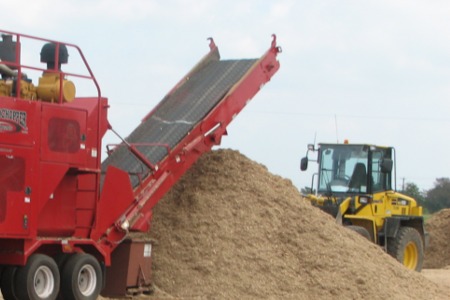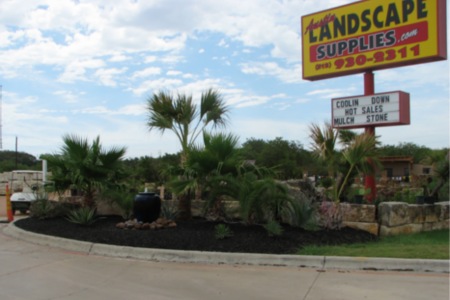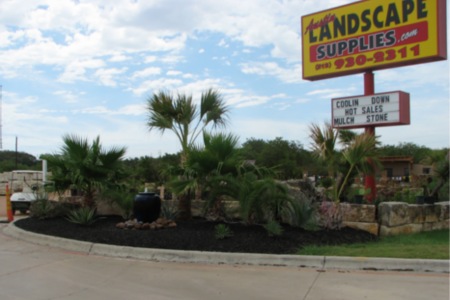
For the past three years, Austin Landscape Supplies has been steadily expanding its business of producing colored and natural landscape mulch, soil amendments, and playground cushion. Recently, when owner Patrick Whittlesey decided they needed bigger grinding and coloring equipment to accommodate their growth, he knew exactly where to turn. Says Whittlesey, “The Rotochopper CP-118 we bought in 2006 was making really great colored mulch from tree care waste, but we needed a bigger machine. We decided on the Rotochopper MC-266, and it’s been the best investment we’ve ever made.”
Austin Landscape Supplies currently produces colored mulch from pallet waste, playground cushion from kiln dried truss plant waste, compost from tree chips, and other finished products from various wood fiber sources. Whittlesey is quick to associate the versatility of the company with the versatility of their Rotochopper equipment. “This is one incredible piece of machinery,” he says. “It’s allowing us to significantly expand the scope of our business.”
As Whittlesey explains, Austin Landscape Supplies started out retailing topsoil, compost, and other soil amendments. In 2006 they purchased a Rotochopper CP-118 to regrind and color wood chips. The CP-118 “is a great starter machine for what we were doing, and it allowed us to quickly grow to the point where we needed a bigger machine.”
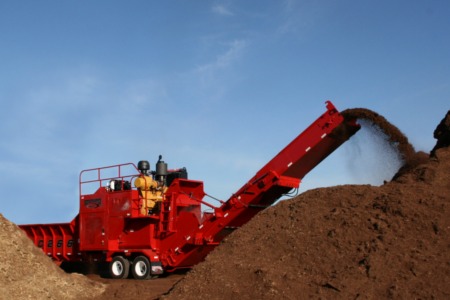
A key to serving their markets, Whittlesey states, is producing the exact end materials that consumers want. “The ability to make the right particle size is absolutely essential to our profitability and growth as a company,” he observes. “With landscape mulch—and especially playground cushion—there’s no room for error. We’ve never seen anything that beats Rotochopper on particle size control.”
Whittlesey explains that they have had various manufacturers perform grinder demos at their operating site and in the past have contracted companies to perform on site custom grinding. “Nothing we’ve seen offers this kind of versatility to handle different waste sources with this level of efficiency. That was a critical part of our decision and a reason we’re still satisfied customers,” he says.
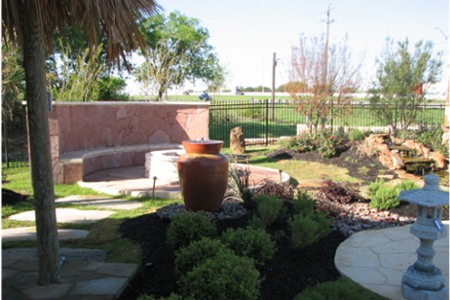
The playground cushion they produce is made exclusively from virgin wood fiber of relatively uniform raw consistency. Yet Whittlesey stresses that the end product specifications are no less challenging. “Because you know where this product is going, you need to know where it’s from,” he says of the fact that the playground cushion is used to protect children from injuries. On the production end, Whittlesey states, that means carefully selecting and monitoring the raw material used to ensure it is free of contaminants and harmful chemicals. The consumer end involves the same selectivity. “With the particle size control we get from our Rotochopper grinder, consumers know they’re getting high quality playground cushion—no spears or jagged edges. That’s piece of mind for everyone.”
Whittlesey particularly appreciates the “unbelievable convenience” the MC-266 brings to their operation. “Because we work in different markets with different finished products, and because we process several different raw materials, we have to be able to switch screens and settings quickly. The MC-266 gives us that ability like nothing else we’ve ever seen.” He cites the slab ramp as an important part of that convenience, noting that they take in some pliable sawmill waste that has been known to quickly plug grinding equipment. “I don’t think we’d be successfully processing this material without the slab ramp. It’s a quick and easy fix.”
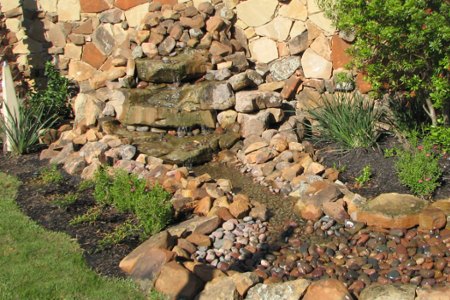
On typical days, they have one person operating the MC-266 and feeding soil into their screener, as well as tending to customers who enter their site. Whittlesey notes that, when customers arrive, the operator must drive the loader away from their grinder. “It’s great that we can dump in a load of material like green slabs or wet chips and attend to something else without worrying about the machine plugging.”
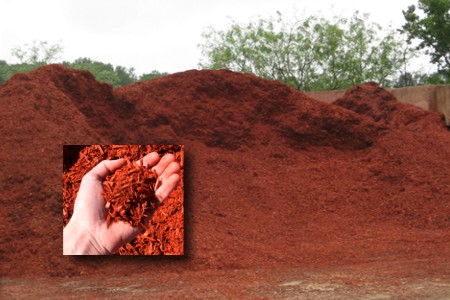
Like many wood waste recyclers, Austin Landscape Supplies has to not only keep customers happy but also their neighbors. Whittlesey notes that noise, dust, and debris are significant concerns because car dealerships and other businesses are located close to their processing site. Whittlesey appreciates the dust control the on-board colorizer system provides. “If the car dealers had to wash dust off their cars everyday, we’d be shut down very quickly,” he remarks.
